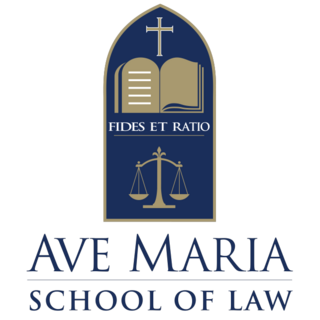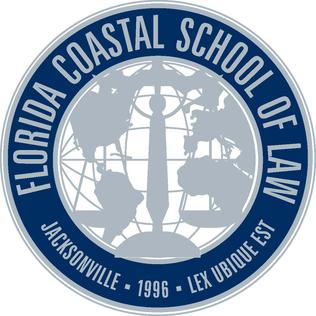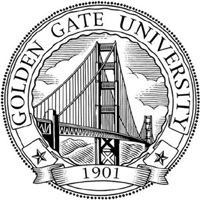
The American Bar Association (ABA) is a voluntary bar association of lawyers and law students; it is not specific to any jurisdiction in the United States. Founded in 1878, the ABA's stated activities are the setting of academic standards for law schools, and the formulation of model ethical codes related to the legal profession. As of fiscal year 2017, the ABA had 194,000 dues-paying members, constituting approximately 14.4% of American attorneys. In 1979, half of all lawyers in the U.S. were members of the ABA. In 2016, less than one third of the 1.3 million lawyers in the U.S. were included in the ABA membership of 400,000, with figures largely unchanged in 2024.
The Association of American Law Schools (AALS), formed in 1900, is a non-profit organization of 175 law schools in the United States. An additional 18 schools pay a fee to receive services but are not members. AALS incorporated as a 501(c)(3) non-profit educational organization in 1971. The association is a member of both the American Council on Education and the American Council of Learned Societies its headquarters are in Washington, D.C.

Ave Maria School of Law is a private Roman Catholic law school in Naples, Florida. It was founded in 1999 and is accredited by the American Bar Association.
Mississippi College School of Law is an American Bar Association accredited law school. MC Law is one of two law schools in the state of Mississippi, and is the only law school in the capital city of Jackson, Mississippi. The school is a professional school of Mississippi College, founded in 1826.

Atlanta's John Marshall Law School (AJMLS) is a private for-profit law school in Atlanta, Georgia. It was founded in 1933 and named for John Marshall, the fourth chief justice of the Supreme Court of the United States. AJMLS is accredited by the American Bar Association.

Florida Coastal School of Law was a private for-profit law school in Jacksonville, Florida. It was established in 1996 and was the last operating of three for-profit law schools of the InfiLaw System owned by Sterling Partners. Because of funding and accreditation issues, the school closed its doors in 2021. U.S. News & World Report ranks Coastal Law 147-193, its lowest law school ranking. In July 2022, the school had the lowest Florida bar passage rate of all Florida law schools, at 31%.

The Charleston School of Law, often referred to by its initials CSOL, is a private law school in Charleston, South Carolina. It was established in 2003 and is accredited by the American Bar Association (ABA). The school was founded upon a principle of promoting public service by its students and graduates; each student must perform at least 50 hours of public service before graduation. According to the school's 2021 ABA-required disclosures, 85% of the Class of 2017 obtained full-time, long-term, JD-required employment nine months after graduation. The school was formerly a for-profit institution, but has since transitioned into non-profit status.
Chapman University's Dale E. Fowler School of Law, commonly referred to as Chapman University School of Law or Fowler School of Law, is a private, non-profit law school located in Orange, California. The school offers the Juris Doctor degree (JD) and combined degree programs including a JD/MBA, and a JD/MFA in Film & Television Producing. The school also offers emphasis options in Business Law, Criminal Law, Entertainment Law, Environmental Law, Entrepreneurial Law, International Law, Trial Advocacy, and Taxation. Currently, the school has 41 full-time and 58 part-time faculty and a law library with holdings in excess of 290,000 volumes and volume equivalents.

The Peoples College of Law (PCL) was an unaccredited private law school located in the downtown Los Angeles community of Westlake-MacArthur Park. PCL offered a part-time, four-year evening law program centered on work in the public interest. As of December 2023, there were seven students. The school closed by May 31, 2024 due to accreditation and financial issues.
The Valparaiso University Law School was the law school of Valparaiso University, a private university in Valparaiso, Indiana. Founded in 1879, the school was accredited by the American Bar Association in 1929 and admitted to the Association of American Law Schools in 1930. In October 2016, the ABA censured the school for admitting applicants who did not appear capable of satisfactorily completing the school's program of legal education and being admitted to the bar. One year later, the school suspended admissions and shut down after the last class graduated in 2020.

The Pontifical Catholic University of Puerto Rico School of Law is the law school of the Pontifical Catholic University of Puerto Rico, a private Catholic university with its main campus in Ponce, Puerto Rico. It was established in 1961.

Golden Gate University School of Law is the law school of Golden Gate University. Located in downtown San Francisco, California, Golden Gate Law is a California non-profit corporation and is fully accredited by the American Bar Association (ABA). On November 30, 2023, the law school announced that it will discontinue its J.D. program at the end of the current academic year, following years of financial hardship and non-compliance with the ABA's two-year bar pass rate requirement.
The Dwayne O. Andreas School of Law is located in Orlando, Florida. The school is an academic college of Barry University in Miami Shores, Florida. Barry Law offers various programs for full-time and part-time students, including a three-year daytime program and a four-year extended studies program in the evening for working students.

The University of South Dakota School of Law also known as University of South Dakota Knudson School of Law or USD Law in Vermillion, South Dakota, United States, is a professional school of the University of South Dakota and the only law school in the state of South Dakota. Established in 1901, by U.S. Ambassador Bartlett Tripp and U.S. Senator Thomas Sterling. The law school is home to approximately 168 students and has more than 3,000 alumni. With 168 J.D. candidates, it is currently the second-smallest law school and smallest public law school student population among the American Bar Association accredited law schools.
Charlotte School of Law was an independent for-profit college in Charlotte, North Carolina, established in 2006. It was provisionally accredited by the American Bar Association (ABA) in 2008, and fully accredited in 2011. However, the ABA placed the school on probation in 2016, resulting in the school's closure the following year. While Charlotte Law served the community through expungement programs and restitution self-help clinics, it was also criticized for alleged mismanagement and compliance issues, which were later found to be true. Charlotte Law was owned by the InfiLaw System.
Florida A&M University College of Law or FAMU College of Law is an ABA-accredited law school in Orlando, Florida, United States. It is part of Florida A&M University.
Cooley Law School (Cooley) is a private law school in Lansing, Michigan, and Riverview, Florida. It was established in 1972. At its peak in 2010, Cooley had over 3,900 students and was the largest US law school by enrollment; as of the Spring of 2022, Cooley had approximately 500 students between its two campuses. In November 2020, Western Michigan University's board of trustees voted to end its affiliation with Cooley, which began in 2014, with disassociation effective November 5, 2023. As of 2024, Cooley has failed to reach the 75% two year bar passage required of ABA Standard 316 for continued accreditation. Multiple media outlets have labeled Cooley the "worst law school in America".
Daniel B. Rodriguez is the former Dean of Northwestern University Pritzker School of Law and holds the Harold Washington Professorship. He was the 2014 President of the Association of American Law Schools (AALS), and served on the American Bar Association's Commission on the Future of Legal Services. He currently acts as an advisor to the ABA's Center for Legal Innovation.
The InfiLaw System was a for-profit consortium of three independent law schools in the United States. It was owned by Sterling Partners, a Chicago-based private equity firm, and was headquartered in Naples, Florida. Charlotte School of Law in Charlotte, North Carolina and Arizona Summit Law School in Phoenix closed, the latter after losing ABA accreditation. InfiLaw relinquished its ownership of Florida Coastal School of Law in Jacksonville, Florida in April 2021, with that entity closing its doors after its Summer, 2021 term.

The Interamerican University of Puerto Rico, Faculty of Law is the school of law of the Interamerican University of Puerto Rico, a private co-educational corporation accredited by the Middle States Association of Colleges and Schools, the Puerto Rico Council of Higher Education, and the Commonwealth of Puerto Rico Department of Education. The School of Law is approved by the American Bar Association (ABA) and is located in San Juan, the capital city of Puerto Rico. Since its founding, the School of Law has succeeded in meeting the needs of the legal profession, in particular, and Puerto Rico's society in general.









